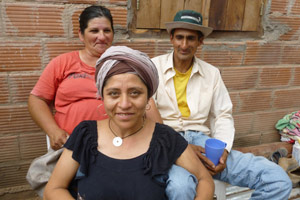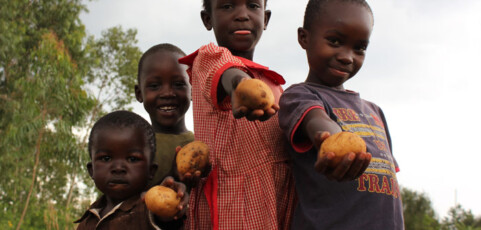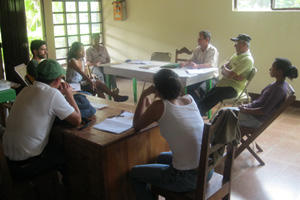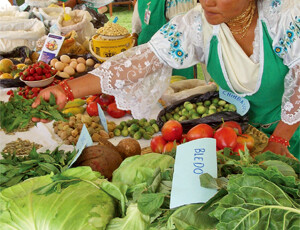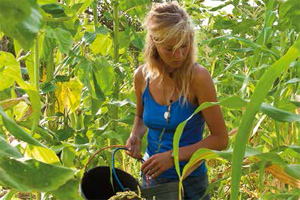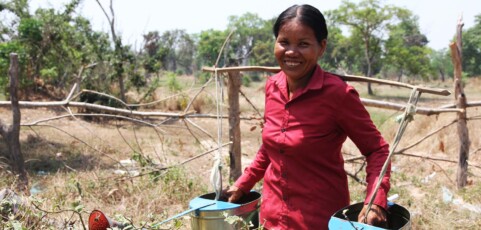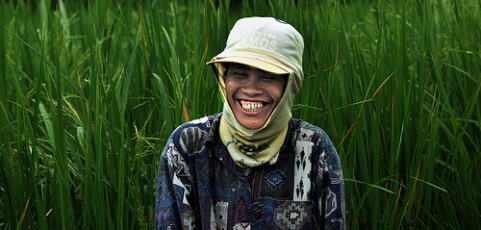En los últimos años los servicios intangibles que brindan los pastizales de Sudamérica tomaron importancia, principalmente los rioplatenses de la Argentina, Uruguay, Paraguay y sur de Brasil. Los pastizales rioplatenses de la Argentina pertenecen en parte a la subregión conocida como Pampa Deprimida. Una porción importante de este paisaje ha sido fuertemente afectada por el proceso de agriculturización. Paradójicamente, en la región argentina existen áreas ubicadas en los alrededores de los grandes cascos urbanos que aún conservan superficies importantes de tierras cubiertas por pastizales naturales manejados por pequeños productores familiares.
From farmer-pastoralist conflicts to profitable alliances
The area around Wum in the Northwest Province of Cameroon is notorious as a conflict hotspot. As pressure increases on available land, conflicts occur more frequently between sedentary family farmers and pastoral communities. Farmer-pastoralist alliances are helping to resolve the conflicts by transforming the relationships between these families.
“We are a political and economic force”
About 23 years ago, in Santiago del Estero, a province in the north of Argentina, the Peasant Movement of Santiago del Estero Via Campesina (MOCASE -VC) was established. One of its leaders is Deo Sumaj, an impressive peasant woman of the Vilela indigenous people. “Peasant family farming could provide many answers to the crises that humanity faces.”
Farming for nutrition: – back to the future
Nutrition has become one of the buzz words of the year, like resilience, and landscapes. What they have in common is that they refer to complex situations with political forces competing over the backs of rural and urban communities. The nutrition challenge is clear – with a billion hungry people on this planet and another two billion overweight – it is time to act. Persistent hunger and undernutrition are inexcusable in a world of plenty. But the crucial question is: who should act and how?
Youth and agriculture: German youth struggle for land
‘Land grabbing’ has grabbed people’s attention in recent years, but this phenomenon is not restricted to developing countries. In the heart of Europe, young German farmers like Paula Giola are also struggling to retain and regain access to farmland.
Peasant to peasant: The social movement form of agroecology
After the electoral defeat of the Sandinistas in 1990, former land owners returned to Nicaragua from the USA. They began to take back their former estates through legal and less than legal manoeuvering, driving many rural people off the land they had been cultivating. This ‘agrarian counter-reform’ as it became known, left many hundreds of people landless in its wake during the 1990s and early 2000s. Now a national union has adopted agroecology and is leading the way for peasant farmers to collectively work their way out of poverty and towards a more resilient model of agriculture.
Linking family nutrition in city and country
Ecuador is going through a substantial nutritional transition. This, coupled with the paradox that rural families that produce food are often those most affected by undernutrition, shows the ironies of ‘modern’ food systems. It also highlights the importance of rural-urban linkages around family nutrition which can help to address such contradictions. This is what we see among families living in two rural villages, San Francisco Alto and Ambuqui, in the north of Ecuador, who through various strategies have managed to achieve healthy, diversified and nutritious diets.
Turning vicious circles into virtuous cycles
We have read about poverty, vulnerability and resilience of family farming. The articles in this issue of Farming Matters have shown that there is an urgent need for a change in mindset regarding family farming, agriculture and food systems. And resilience must be the central concept in this new thinking.
Climate Resilience Sustainable Agriculture Experiences
This document summarises case studies from ten countries through ActionAid’s approach to climate resilient sustainable agriculture, which incorporates agroecology in a human rights framework. Based on these experiences ActionAid recommends to increase investment in agroecology, as part of a comprehensive human rights based approach: Read more
Locally rooted: ideas and iniatives from the field
Family farmers and the many ways in which they contribute to food security, healthy landscapes and thriving rural communities can be supported in a number of ways. These are some initiatives from around the world.



